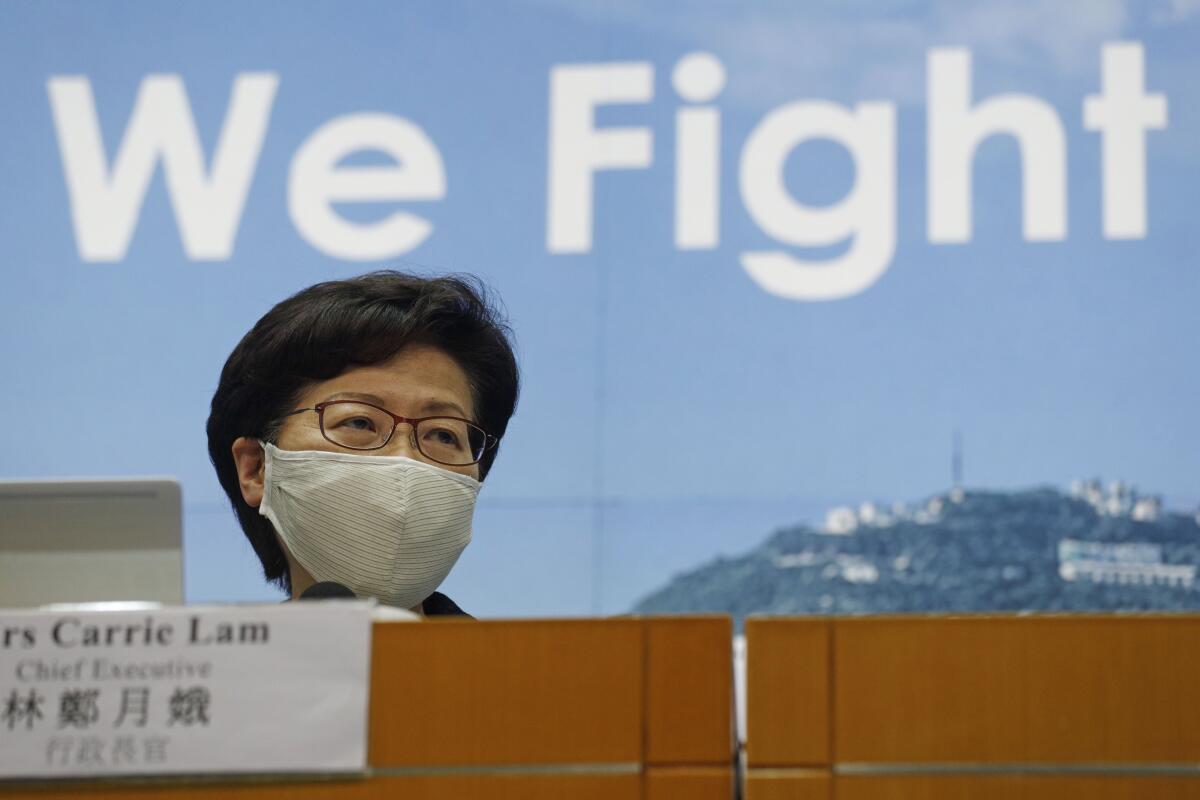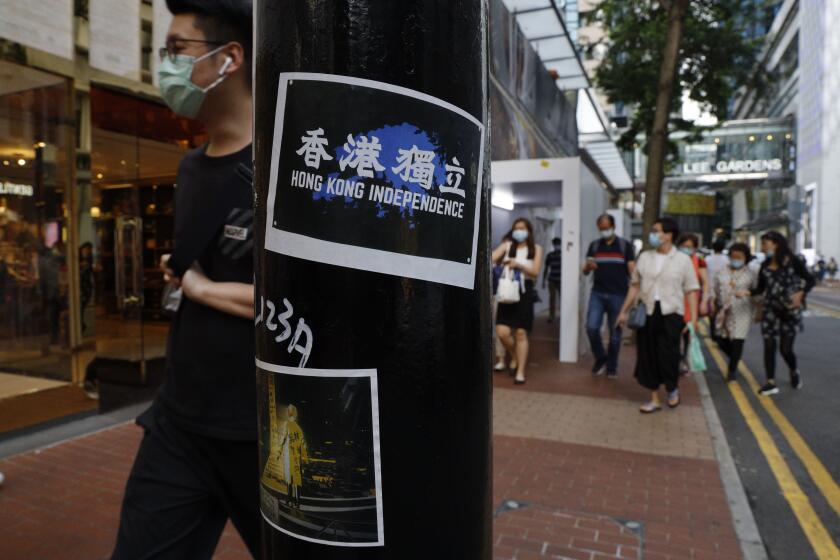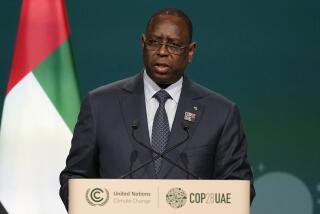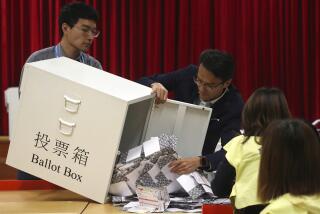Hong Kong postpones elections, citing coronavirus but alarming democracy advocates

- Share via
HONG KONG — Hong Kong leader Carrie Lam announced Friday that the government will postpone highly anticipated legislative elections by one year, citing a worsening coronavirus outbreak but worrying pro-democracy activists, who say political dissent is being stifled.
The semi-autonomous city’s government is invoking an emergency ordinance in delaying the elections. Lam said the government has the support of the Communist regime in Beijing in making the decision.
“The announcement I have to make today is the most difficult decision I’ve had to make in the past seven months,” Lam said at a news conference. “We want to ensure fairness and public safety and health, and need to make sure the election is held in an open, fair and impartial manner. This decision is therefore essential.”
The postponement is a setback for the pro-democracy opposition, which was hoping to capitalize on disenchantment with the current pro-Beijing majority to make gains. A group of 22 lawmakers issued a statement ahead of the announcement accusing the government of using the outbreak as an excuse to delay the vote.
“Incumbent pro-democracy legislators, who represent 60% of the public’s opinion, collectively oppose the postponement and emphasize the responsibility of the [Hong Kong] government to make every effort to arrange adequate anti-epidemic measures to hold elections in September as scheduled,” the statement said.
“Otherwise, it is tantamount to uprooting the foundation of the establishment” of Hong Kong as a semi-autonomous region of China, the statement added.
Hong Kong’s controversial national security law is increasingly being used to stifle political dissent in the semi-autonomous city.
The city of 7.5 million people has seen a surge in coronavirus infections since the beginning of July. Hong Kong has recorded 3,273 infections as of Friday, more than double the tally on July 1.
The government has tightened social distancing restrictions, limiting public gatherings to two people, and banned dining in at restaurants after 6 p.m.
The lead-up to the elections has been closely watched, after a national security law that took effect in late June stipulated that candidates who violated the law would be barred from running.
The new law is seen by many residents as Beijing’s attempt to curb dissent in the city after months of pro-democracy and anti-government protests in Hong Kong last year.
Less than two weeks under a new national security law enacted by Beijing, Hong Kong residents already feel a curtain of control falling over the city’s realms of speech and thought.
On Thursday, 12 pro-democracy candidates, including prominent activist Joshua Wong, were disqualified from running for not complying with the city’s mini-constitution or pledging allegiance to the local and national governments.
“Beyond any doubt, this is the most scandalous election ever in Hong Kong history,” Wong told reporters Friday. “I wish to emphasize that no reasonable man would think that this election ban is not politically driven.”
“Beijing has staged multiple acts to prevent the opposition bloc from taking the majority in the Hong Kong legislature,” he said.
More to Read
Sign up for Essential California
The most important California stories and recommendations in your inbox every morning.
You may occasionally receive promotional content from the Los Angeles Times.











